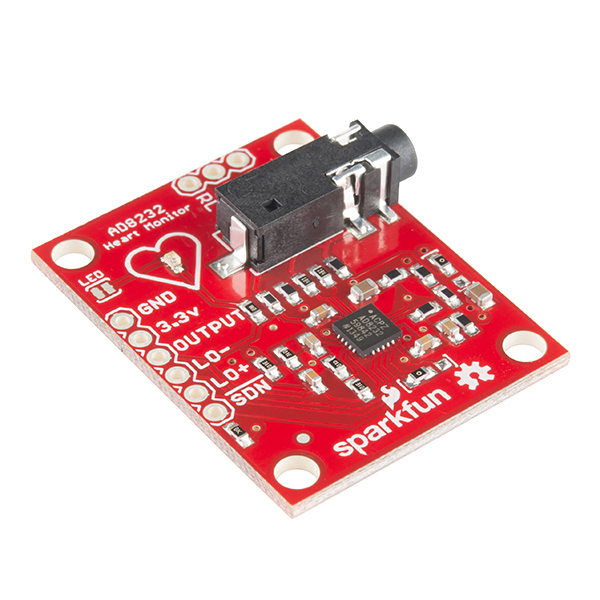|
upm
1.7.1
Sensor/Actuator repository for libmraa (v2.0.0)
|
|
upm
1.7.1
Sensor/Actuator repository for libmraa (v2.0.0)
|
UPM module for the AD8232 Heart Rate Monitor. More...
Note: this sensor must be driven at 3.3V only.
This module simply spits out the ADC values reported by the sensor, with the intent to send that data, via serial or network port, somewhere to another piece of software running on a computer that plots the data for you, like an EKG.
Processing (https://www.processing.org/) is software that should work, using information from the SparkFun* website.
This example just dumps the raw data:

AD8232 Heart Rate Monitor image provided by SparkFun under CC BY 2.0.
Public Member Functions | |
| AD8232 (int loPlus, int loMinus, int output, float aref=AD8232_DEFAULT_AREF) | |
| ~AD8232 () | |
| int | value () |
| AD8232 | ( | int | loPlus, |
| int | loMinus, | ||
| int | output, | ||
| float | aref = AD8232_DEFAULT_AREF |
||
| ) |
AD8232 constructor
| loPlus | Digital pin to use for LO+ |
| loMinus | Digital pin to use for LO- |
| output | Analog pin to read the data |
| aref | Analog voltage reference |
| int value | ( | ) |
Returns the current ADC value for the device output pin. If an LO (leads off) event is detected, 0 is returned.
 1.8.11
1.8.11